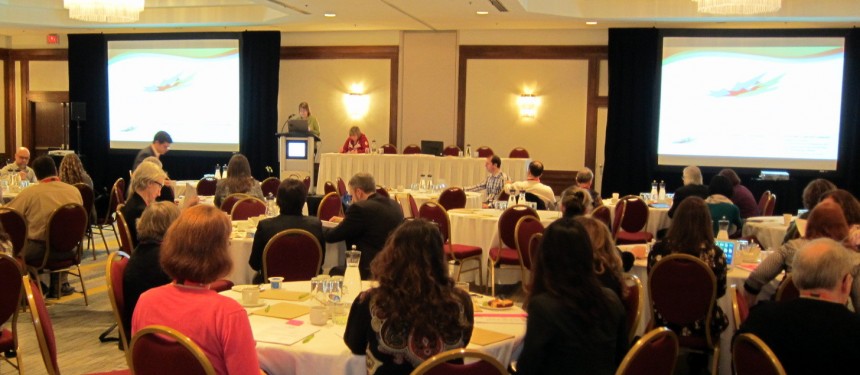Educational institutions in Canada have voiced opposition to tough new regulations prohibiting them from providing visa information to international students. The amendment means only registered consultants can offer visa advice, with penalties reaching up to CAN$100,000 or two years’ imprisonment.
News and business analysis for Professionals in International Education
Have some pie!
Canada: ‘Hamstrung’ institutions protest visa advice rules
 Representatives from many member institutions voiced serious concerns about the bill at the Languages Canada conference last week
Representatives from many member institutions voiced serious concerns about the bill at the Languages Canada conference last week “The bill has completely hamstrung us as a university from assisting students whatsoever with visa information, which is ridiculous”
Originally dubbed the ‘Cracking Down on Crooked Consultants Act’, Bill C-35 is an amendment to Section 91 of the Immigration and Refugee Protection Act that aims to protect students from unscrupulous consultants and prevent the dissemination of advice on how to cheat the visa system.
However, educators voiced concerns at a recent Languages Canada conference that it may prevent them answering queries as basic as whether students have filled in the correct application form.
“[The bill] has completely hamstrung us as a university from assisting students whatsoever with visa information, which is ridiculous,” David Parkinson, Languages Canada board member and Director of the University of Saskatchewan’s Language Centre, told The PIE News.
“Governments always sweep with a broom that’s way too wide, and that’s what they’ve done,” he explained.
Despite receiving royal assent in 2011, educational institutions received the final edict that the bill applies to them only last year.
University staff must direct students to Citizenship and Immigration Canada (CIC)’s website or to a registered advisor. Many institutions have been forced to shut down websites offering advice.
Jennifer Humphries of The Canadian Bureau for International Education (CBIE) said that educational staff may be better positioned to provide support given their cultural sensitivity and understanding of students’ academic circumstances.
She told The PIE News that CBIE has proposed a more streamlined training process to CIC and ICCRC that would enable student advisors to offer basic information about study and work permits but not asylum, permanent residence or citizenship. She said that CIC is “cautiously optimistic” about the potential for collaboration.
Mary Lou Harnish, Director of Studies at Halifax ESL school, noted that it could take her up to a year to complete the training required to register with the Immigration Consultants of Canada Registry Council (ICCRC).
“I think what’s going to be most frustrating is that students trust the people in the school,” she said, underlining that many ESL students find telephone conversations difficult, which could make it more difficult for them to access the information they need.
Still looking? Find by category:



Unfortunately, I have not seen that work well in all situations. I have fixed “advice” situations by DSO’s. Although this is tolerated by USCIS here in the US, if it were an area other than immigration law, advising anyone on the law and not being a lawyer would be the unauthorized practice of law.